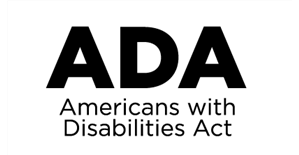Americans with Disabilities Act Title II Action Guide for State and Local Governments
Here's what's in this section:In the United States of America, individuals with spinal cord injuries and other disabilities are protected by a range of laws aimed at safeguarding and promoting their health, welfare, and independence. These legislative measures have been established thanks to the efforts of disability advocacy groups nationwide. Explore this section to find programs, agencies, resource centers, and special interest groups dedicated to advocating for accessibility, inclusion, and equality for individuals living with spinal cord injuries. Browse through the resources below to discover various Disability Resource Centers that serve as hubs of disability-specific information. These include sources for health and patient advocates who can assist you in navigating the complexities of the healthcare system. Learn about self-advocacy across a spectrum of needs, including medical, psychological, social, emotional, recreational, and vocational. Gain insights into finding healthcare providers and identifying additional support through community-based disability groups. Additionally, this section features statewide disability action centers and alliances committed to promoting and safeguarding civil rights for people with disabilities. These entities encompass statewide Centers for Independent Living (CIL), chapters of the National Spinal Cord Injury Association, Family Caregiver Alliances, and foundations supporting spinal cord injury recovery. These groups offer transition support and counseling for housing, home-based services, personal assistants, and other legal services. Centers for Independent Living and Spinal Cord Associations also administer peer mentoring programs for youth and adults.
|
